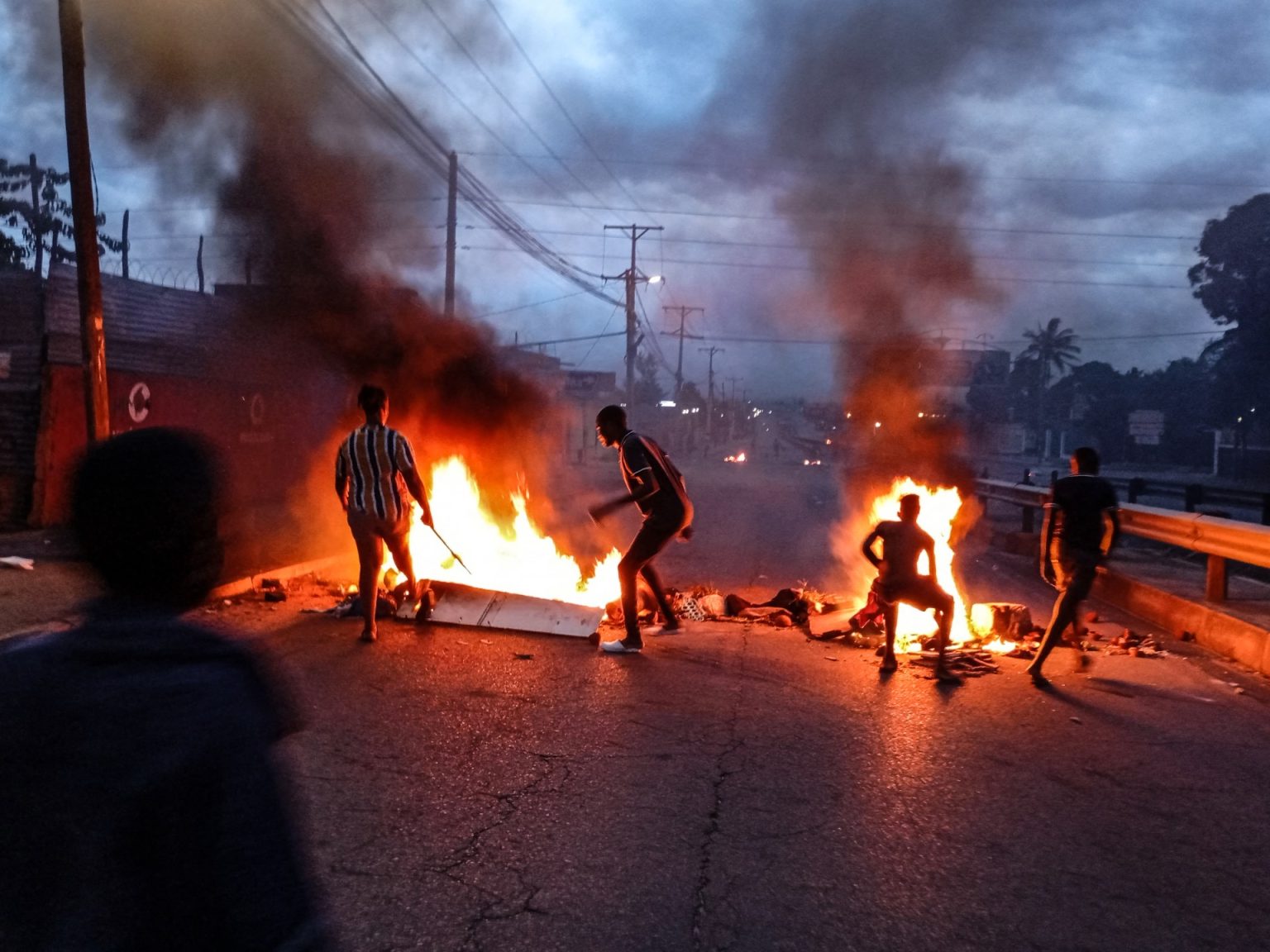Mozambique has been plunged into a deep political crisis following the controversial October 9 general elections. The long-ruling Frelimo party, in power since independence in 1975, secured another victory, with its candidate, Filipe Nyusi, winning the presidency. However, the opposition, led by Renamo candidate Ossufo Momade, along with other contenders, vehemently rejected the results, alleging widespread irregularities and fraud. These allegations were corroborated by independent election observers, including those from the influential Catholic Church and the European Union, further fueling the discontent. The ensuing unrest has spiraled into weeks of violent clashes between demonstrators and security forces, resulting in a significant loss of life and widespread damage to property.
The post-election violence has taken a dramatic turn with a mass prison break in the capital, Maputo. On Christmas Day, thousands of inmates escaped from the Maputo Central Prison amidst what authorities described as a “revolt.” The escape, which reportedly involved clashes between prisoners and security forces, resulted in numerous casualties. Initial reports suggested a smaller number of escapees, but the figure was later revised upwards to a staggering 6,000. Among the escaped prisoners are individuals convicted of terrorism-related offenses, raising concerns about the potential for further destabilization. The incident has cast a harsh spotlight on the fragility of Mozambique’s security apparatus and the escalating tension gripping the nation.
Conflicting accounts have emerged regarding the circumstances surrounding the prison break. While police initially suggested that external protesters played a role in inciting the unrest, subsequent statements from government officials indicated the uprising originated within the prison walls. Regardless of the catalyst, the prison break highlights the volatile atmosphere pervading the country. Some analysts speculate that the reduced security presence during the holiday period may have contributed to the successful escape. The incident also underscores the precarious state of Mozambique’s prison system and the urgent need for reforms to prevent future occurrences.
The contested election results sparked the initial wave of protests, with opposition supporters taking to the streets in major cities across the country. These demonstrations, characterized by roadblocks, burning tires, and attacks on government buildings and businesses, were met with a forceful response from security forces. The ensuing cycle of violence has claimed lives on both sides, further deepening the political divide and exacerbating the crisis. The opposition’s call for a national shutdown has further disrupted daily life and added to the economic woes facing the country.
Opposition leader Ossufo Momade, who disputed the election outcome and legally challenged the results, has remained a vocal critic of the government. Communicating with his supporters primarily through social media platforms, he has accused the government of orchestrating the violence and suppressing dissent. Momade’s pronouncements, including his intention to declare himself president, have further heightened tensions. His claims of government-sponsored looting and deliberate inaction by security forces, aimed at creating a pretext for a state of emergency, have added another layer of complexity to the already turbulent situation.
The international community has expressed growing concern about the escalating violence in Mozambique. The United Nations, the African Union, and the United States have all called for restraint and dialogue to de-escalate the situation. These calls for calm and peaceful resolution underscore the international community’s recognition of the gravity of the crisis. The United States, in particular, has emphasized the need for accountability for human rights violations committed during the unrest, highlighting the importance of upholding democratic principles and ensuring justice for the victims of the violence. The future of Mozambique hinges on the willingness of all stakeholders to engage in constructive dialogue and seek a peaceful resolution to the political impasse.

